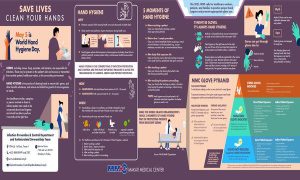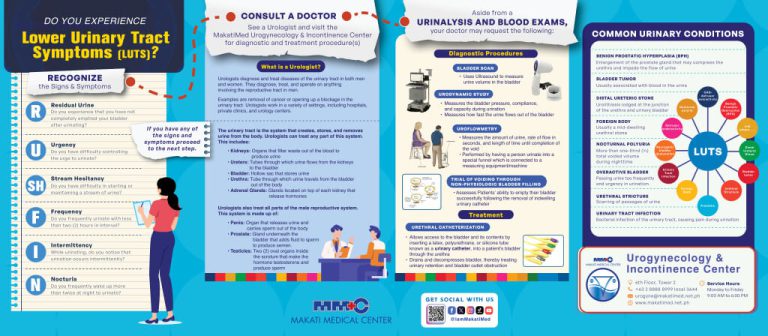Roughly a year-and-a-half after the coronavirus outbreak, the whole world now braces for another wave of COVID-19 infections—this time involving a more dangerous Delta variant.
First detected in India, the variant quickly spread to other countries—including the Philippines—where the onset of the first local transmission was reported in mid-July 2021. Besides its high transmissibility, the Delta variant is also known as a severe threat to the unvaccinated, including children.
Without vaccination, adults and children alike remain susceptible to infections and, in worst-case scenarios, may succumb to a deadlier kind of pneumonia caused by COVID-19.
What is pneumonia?
Pneumonia is an infection where fluid or pus fills the air sacs—called alveoli—in the lungs, causing them to inflame. The inflammation then causes symptoms like chills or fever, cough, and difficulty breathing, among others.
There are different types of pneumonia, depending on what causes the infection:
- In fungal pneumonia, someone exposed to contaminated soil or bird droppings may develop pneumonia, especially if that person has a weak immune system or chronic health problems.
- Bacterial pneumonia is the most common type of lung infection. The cause of this form of pneumonia—Streptococcus pneumoniae—lives in the upper part of the respiratory system.
- Viral pneumonia, as the name suggests, is due to a virus infecting the upper respiratory tract. Depending on which virus causes the infection, viral pneumonia may be mild, severe, or even fatal.
How does COVID-19 cause pneumonia?
COVID-19 pneumonia is caused by severe acute respiratory syndrome coronavirus 2 (SARS-CoV-2). It is a new strain of the coronavirus that caused the SARS outbreak in 2003.
The SARS-CoV-2 infection occurs when a person is exposed to respiratory fluids carrying the virus. It enters the upper respiratory tract through inhaled droplets or aerosol particles. The virus then multiplies and attacks the cells in the body, causing damage to the lungs’ air sacs or alveoli and the surrounding tissues.
The body’s immune system responds by fighting the virus, but it eventually breaks down for many of the infected as fluid and dead cells start building up and clogging the lungs’ air sacs. This affects the oxygen supply in the lungs, so the person with COVID-19 pneumonia experiences coughing and shortness of breath.
Why COVID-19 pneumonia is more fatal
On its own, pneumonia can be a serious health risk because it primarily attacks the lungs which are responsible for respiratory functions—getting oxygen into the body and delivering it to the bloodstream, sending out carbon dioxide, among others—that are vital for survival.
However, researchers warn of the more dangerous COVID-19 pneumonia. Compared with pneumonia caused by bacteria, fungi, or other viruses, the symptoms of pneumonia in COVID-19 last longer.
At first, infections occur in various small areas of the lungs and then spread slowly over several days or weeks. As such, it is common for people with COVID-19 pneumonia to have both of their lungs infected rather than just one.
This lengthy, large-scale infection—coupled with the gravity of COVID-19—leads to damaged lung tissues, resulting in more severe complications like acute respiratory distress syndrome (ARDS). ARDS is a form of lung failure that develops quickly, requiring patients to be placed on ventilators to get oxygen into their lungs.
COVID-19 pneumonia can also have negative effects on other vital organs such as the heart, kidneys, and brain since these organs are likely to become dysfunctional caused by lung failure.
Laboratory tests also show abnormalities in the liver, although the U.S. Centers for Disease Control and Prevention says either the infection or some other factors may be responsible for the damage to this particular organ.
Another risk with COVID-19 pneumonia is its long-term effects on the lungs. Unlike regular pneumonia, where people recover without any lasting lung damage, pneumonia due to COVID-19 can be so severe that it leaves lung lesions, causing breathing difficulties even after recovery.
Treatment of pneumonia associated with COVID-19 may include the following steps:
● Administering intravenous (IV) fluids to combat dehydration
● Using antiviral drugs, such as remdesivir, to help prevent the virus from multiplying
● Using antibiotics to treat any secondary bacterial infection
In severe cases where the patient continues to struggle to breathe, doctors may decide to go for intubation. This method of treatment involves inserting a tube through the nose or mouth to manually pump air into the lungs or via a ventilator.
COVID-19 and Pneumonia Are a Deadly Duo
It can be concerning how the spread of the Delta variant may spike COVID-19 infections with pneumonia in the coming days, weeks, or months.
This brings to light the importance of observing basic preventive measures, including frequent and proper handwashing, wearing face masks, practicing social distancing, and observing other minimum health protocols. More importantly, getting vaccinated should be a priority, since it strengthens the immune system to provide a certain level of protection.
Makati Medical Center is fully equipped to address your health concerns, including lung disease due to COVID-19. Get in touch with us to know more about our world-class healthcare services.











